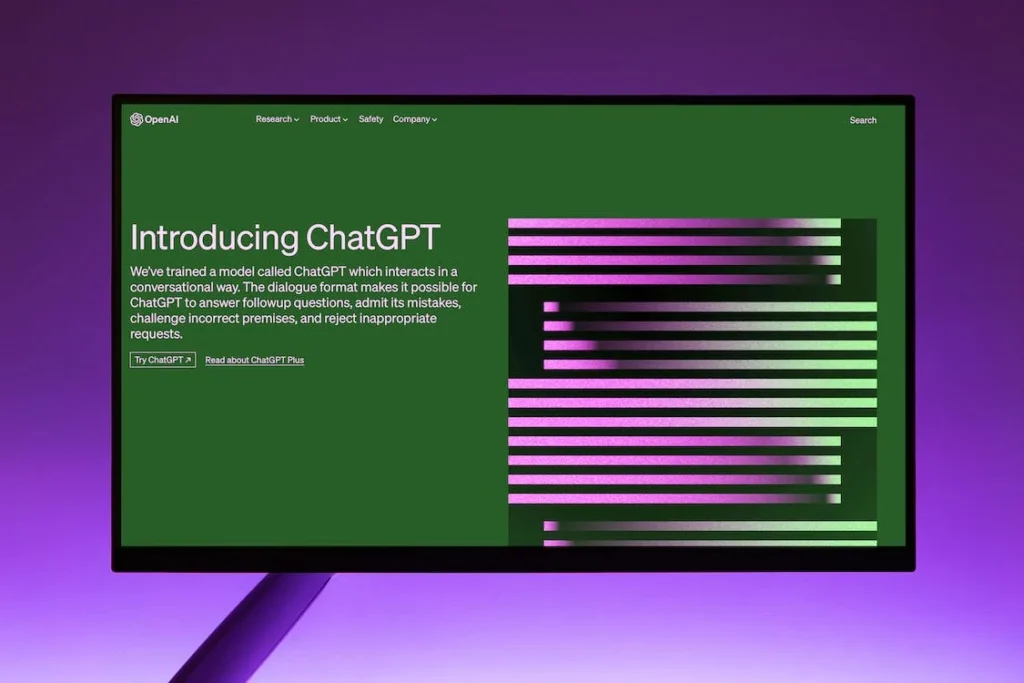Create your own writing, but ask the AI bot for assistance in making it stand out from the crowd.
It has been quite a year for ChatGPT, with the large language model (LLM) now taking examinations, churning out material, exploring the web, generating code, and doing a variety of other things. The AI chatbot is capable of writing its own stories, albeit the question remains as to whether or not they are any good.
However, at this point in time, it is not inevitable that journalists, authors, and copywriters will be replaced by generative AI bots. If you are in any way involved in the business of writing, then technologies like ChatGPT have the potential to completely upend the way you operate.
We are able to claim with absolute assurance that ChatGPT is a trustworthy writing assistance, provided that it is utilised in the appropriate manner by its users. If you are required to organise words as part of your employment, the following is an explanation of how ChatGPT could be able to take your writing to the next level, at least until it is able to replace you.
Choose the Correct Word
While utilising a thesaurus to find the perfect word or phrase isn’t especially frowned upon, using ChatGPT to do the same shouldn’t be. To be even more exact, you may tell the bot that you prefer alternatives that are longer or shorter, less formal, or any combination of these. You can even use the bot to search for variants on a certain term.
When you’re seeking for a term and you’re not even sure it exists, ChatGPT definitely helps: You will be given the recommendation of “ennui” if you ask for “a word that means a sense of melancholy but in particular one that comes and goes and doesn’t seem to have a single cause” (or at least that’s what we did).
You may also inquire about terms or phrases that someone from a specific area, age, or character type would generally use if you have characters conversing. You may always ask for more recommendations because this is ChatGPT.
Look for Motivation
It’s difficult to argue against ChatGPT’s ability to generate original ideas, regardless of your opinions on the style and substance of its writing. If you’ve run out of creative juices, ChatGPT can help you come up with ideas for scenes, story elements, character motives, and other things.
This might be anything from general to specific. Perhaps you are in search of inspiration for a novel or essay, including ideas for the setting, the topic, and the context. If you create short stories, you may set a goal for yourself to produce five stories that are motivated by concepts from ChatGPT.
On the other hand, you may require inspiration for something extremely specific, like the next scene in a story or an essay summary. If you have writer’s block at any stage of the process, ChatGPT may be able to help.
Conduct Research
Composing is frequently much more than just sequencing words on paper. Unless your next book is set totally in a fictional world that you’re creating in your head, you’ll need to check facts, numbers, trends, history, and more on a frequent basis.
When it comes to understanding what cuisine individuals could have eaten in a certain year in a particular region of the world or what the protocol is for a specific kind of crime, ChatGPT can occasionally outperform traditional search engines. ChatGPT will provide you with a cohesive result, unlike Google which may provide you with spam sites that are stuffed with SEO and contradicting responses.

Nevertheless, keep in mind that LLMs are known to “hallucinate” and give false information, so you should always confirm what ChatGPT informs you with a second source to be sure you’re not misinformed.
Select a Character and Location
Proper naming of places and fictitious characters may be difficult, particularly if such places and characters are crucial to the story. A name should have the appropriate feel and meaning; otherwise, it will stand out greatly on the page.
You may use ChatGPT to generate an infinite number of names for characters and locations in your upcoming fiction, and experimenting with this feature can be really entertaining. The more information you can provide about a person or location, the better; perhaps you want a name that accurately captures a characteristic of the person or a quality of the environment.
While human creativity and curation are still necessary because you must still evaluate potential names and choose the best one, having ChatGPT on staff may save you a tonne of time when brainstorming ideas.
Examine Your Work
You may rapidly ask ChatGPT to evaluate your writing by copying and pasting some text. It will try to identify any logical errors, prolonged phrases, or language that doesn’t flow naturally.
ChatGPT has a lot to offer as an editor and critic, from identifying spelling and grammatical errors to identifying an overly formal tone. Keep in mind that this is an LLM and that it isn’t really capable of doing anything. Strike a healthy balance between allowing ChatGPT to make ideas and giving it too much authority.
You may also ask ChatGPT for advice on how to improve the wording or tone of a passage you’re sharing. However, this approach crosses the line into having the bot write for you, something that all professional writers should avoid.
Sources:
-https://www.wired.co.uk/article/chatgpt-writing-tips
-https://10-raisons.fr/en/5-Ways-Chatgpt-Can-Enhance%2C-Not-Replace%2C-Your-Wired-Writing/
-https://chatgptschool.org/how-to-use-chatgpt-to-write-a-novel/
-https://freelancewritinggigs.com/improving-your-writing-with-chatgpt-a-guide-for-freelance-writers/
To read more, Visit Britainobserver.co.uk
